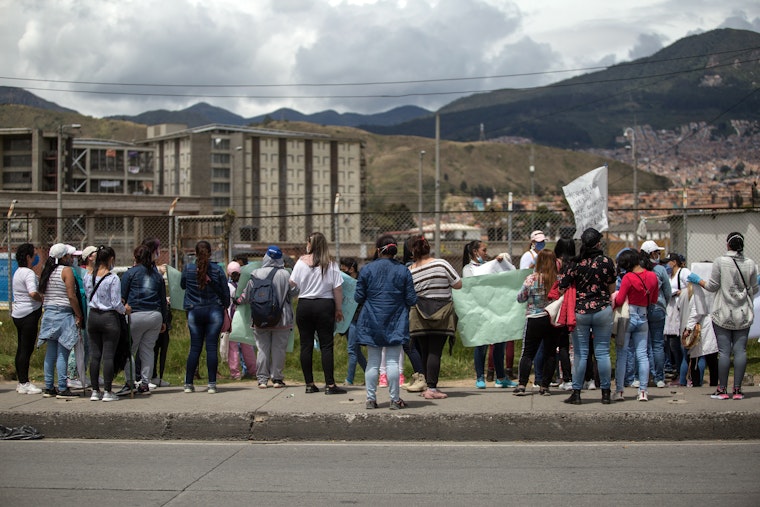Protecting Prisoners’ Health during COVID-19
By Maïté De Rue

On March 17, 2020, a 74-year-old man named Mohamed M. died from COVID-19. He spent the final nine days of his life as a pretrial detainee in a prison in Fresnes, France. Although he showed signs of being ill from COVID-19 when he was admitted, he was never properly quarantined nor tested, and no masks were distributed in the prison. In fact, conditions in Mohamed M.’s prison were primed to spread the virus, including massive overcrowding, with occupancy at 160%, vermin infestations, and extremely poor ventilation. Although he had not yet been tried or convicted, Mohamed’s jail term had effectively become a death sentence.
Since Mohamed M.’s death, cases of COVID-19 in prisons have skyrocketed around the world. Overcrowding, poor living conditions, inadequate ventilation, and limited access to basic hygiene and health care needs are common features of the prison environment. The World Health Organization has warned that “the global effort to tackle the spread of disease may fail without proper attention to infection control measures within prisons.”
Physical distancing, one of the most effective ways to prevent the spread of the virus, is often impossible behind bars. In other cases, governments and prison authorities neglect or refuse to implement it and other measures to limit the spread of COVID-19 recommended by public health authorities. This has led to an increasing number of infections in places of detention and COVID-19 related deaths around the world. Coronavirus outbreaks in prisons also constitute a public health problem that puts surrounding communities at risk, when staff members and incarcerated persons are exposed to the outside world. Staff members circulating between prisons and living within communities, and the coming-and-going of members of the incarcerated population, especially those in pretrial detention who pass more frequently in and out of prison, can contribute to the spread of the virus locally. As underscored by the World Health Organization, local efforts to control COVID-19 are likely to fail if authorities do not adopt strong measures in prisons and other places of detention.
But the spread of COVID-19 behind bars is not inevitable. International human rights treaties and conventions which establish clear obligations on governments and prison authorities already existed before the pandemic. These obligations are especially crucial now.
According to international human rights law, states must ensure that people in their custody receive adequate treatment, including taking appropriate steps to safeguard life, health, and well-being. The COVID-19 measure most urgently recommended by UN bodies and human rights defenders is to allow for physical distancing by drastically reducing the number of people in detention. States also have the duty to secure access to adequate healthcare for those in prison during the pandemic. International law stipulates that incarcerated people should have prompt access to medical care, in conditions similar to those in the outside community, including timely transfer to the hospital when required.
In response to the COVID-19 pandemic, the Justice Initiative has published a legal brief detailing the international legal framework that governs the duty of states to protect the health and life of incarcerated individuals. It serves as a concise guide to international standards and norms to support legal practitioners and advocates fighting for and litigating the human rights of those behind bars.
The brief details:
- Specific preventive measures that states should immediately adopt, including providing incarcerated persons, staff, and visitors with information about the virus that allows them to protect themselves, the provision of adequate hygiene and cleaning products and PPE, and the implementation of wide-spread testing
- Guidelines on the provision of treatment and medication
- Guidelines on physical distancing and medical isolation, including how to manage contact with the outside world and ensure access to lawyers during the pandemic
- The duty to properly and independently investigate cases of death in prison
- The increased need for states to be more transparent in disclosing measures taken to address the pandemic
COVID-19 continues its deadly march around the globe, with the lives of incarcerated persons hanging on the line. Yet future deaths like that of Mohamed M. are still avoidable. The clock is ticking, and decision-makers must act now.
Maïté De Rue is a legal officer for national criminal justice reform with the Open Society Justice Initiative, where she focuses on criminal justice reforms, and in particular prosecutorial independence and accountability.